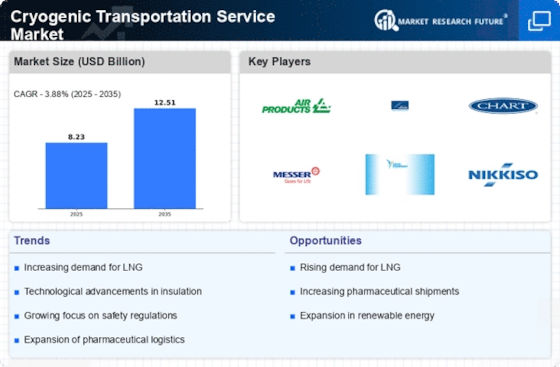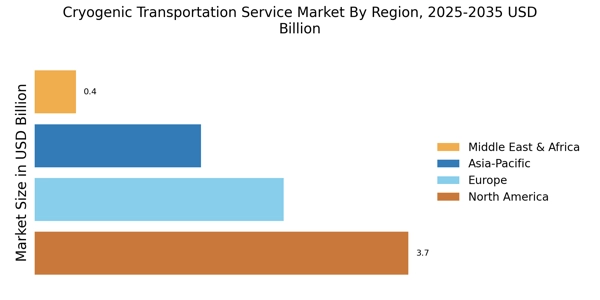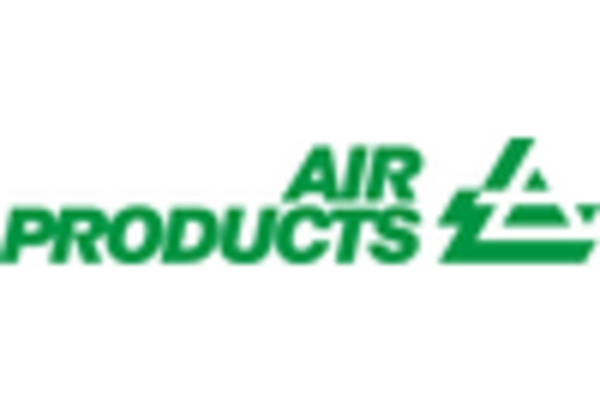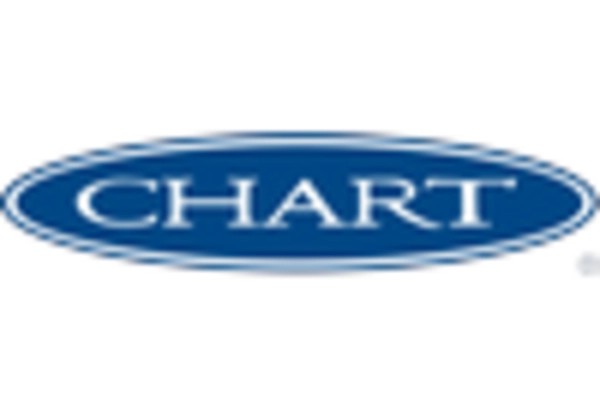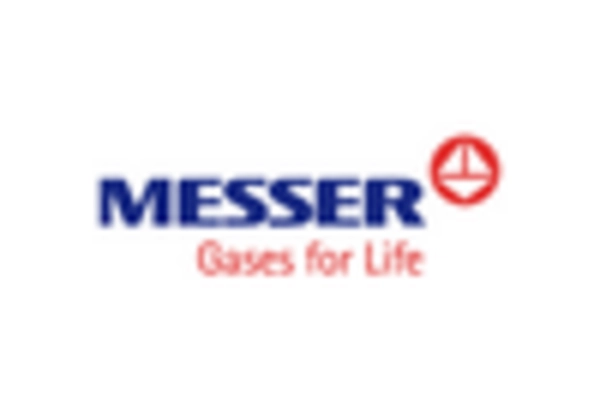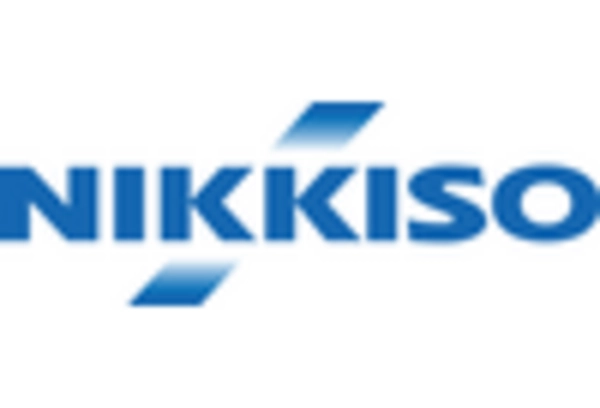Increasing Regulatory Compliance
The increasing regulatory compliance requirements surrounding the transportation of hazardous materials are influencing the Cryogenic Transportation Service Market. Governments and regulatory bodies are implementing stringent guidelines to ensure the safe handling and transportation of cryogenic substances. Compliance with these regulations necessitates specialized transportation services that adhere to safety standards. Companies that provide cryogenic transportation services must invest in training, equipment, and technology to meet these regulatory demands. This focus on compliance not only enhances safety but also builds trust with clients, potentially leading to increased market share. As regulations continue to evolve, the demand for compliant cryogenic transportation services is expected to rise, further driving market growth.
Rising Demand for Cryogenic Gases
The increasing demand for cryogenic gases, such as liquefied natural gas (LNG) and liquid oxygen, is a primary driver for the Cryogenic Transportation Service Market. Industries such as healthcare, aerospace, and energy are experiencing a surge in the need for these gases. For instance, the LNG market is projected to grow significantly, with estimates suggesting a compound annual growth rate (CAGR) of over 10% in the coming years. This growth necessitates efficient transportation solutions, thereby propelling the demand for cryogenic transportation services. As companies seek to optimize their supply chains, the need for specialized transportation services that can handle cryogenic materials safely and efficiently becomes increasingly critical. Consequently, this trend is likely to bolster the overall market for cryogenic transportation services.
Growth in Energy Sector Investments
The growth in investments within the energy sector, particularly in liquefied natural gas (LNG) and renewable energy, is a significant driver for the Cryogenic Transportation Service Market. As countries strive to transition to cleaner energy sources, the demand for LNG is expected to increase, necessitating efficient transportation solutions. Investments in LNG infrastructure, including terminals and pipelines, are projected to reach hundreds of billions of dollars over the next decade. This expansion creates a robust demand for cryogenic transportation services to facilitate the movement of LNG from production sites to end-users. Consequently, the energy sector's growth is likely to have a profound impact on the cryogenic transportation market, fostering new opportunities for service providers.
Expansion of Healthcare Applications
The expansion of healthcare applications utilizing cryogenic transportation is a notable driver for the Cryogenic Transportation Service Market. The demand for cryopreservation and the transportation of biological samples, such as stem cells and vaccines, is on the rise. The healthcare sector is increasingly relying on cryogenic services to maintain the viability of sensitive materials during transport. Reports indicate that the biopharmaceutical market is expected to reach over 500 billion USD by 2025, further emphasizing the need for reliable cryogenic transportation solutions. This trend is likely to create new opportunities for service providers specializing in the transportation of cryogenic materials, thereby contributing to the overall growth of the market.
Technological Innovations in Cryogenic Transport
Technological advancements in cryogenic transportation are transforming the Cryogenic Transportation Service Market. Innovations such as improved insulation materials and advanced cryogenic tank designs enhance the efficiency and safety of transporting cryogenic liquids. For example, the development of vacuum-insulated tanks has significantly reduced heat transfer, thereby minimizing product loss during transit. Furthermore, the integration of real-time monitoring systems allows for better tracking of temperature and pressure conditions, ensuring the integrity of the cargo. These technological improvements not only enhance operational efficiency but also reduce costs associated with cryogenic transportation. As a result, companies are increasingly investing in these advanced technologies, which is expected to drive growth in the cryogenic transportation sector.


